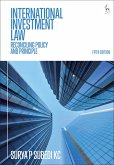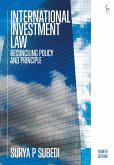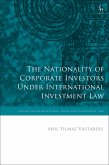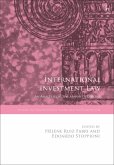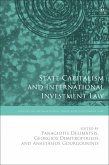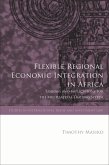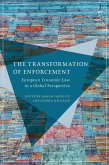This book offers an up-to-date, scholarly overview of the law of foreign investment, incorporating a thorough and succinct analysis of the principles and standards of treatment available to foreign investors in international law. It is authoritative and multi-layered, offering an analysis of the key issues and an insightful assessment of recent trends in the case-law, from both developed and developing country perspectives. A major feature of the book is that it deals with the tension between the law of foreign investment and other competing principles of international law. In doing so, it proposes ways of achieving a balance between these principles and the need to protect the legitimate rights and expectations of foreign investors on the one hand, and the need not to unduly restrict the right of host governments to implement their public policy, including the protection of the environment and human rights, and the promotion of social and economic justice within the host country, on the other.
Since the first edition was published a number of landmark decisions have been produced by various international investment tribunals, calling for an update in what is a fast growing and rapidly changing investment environment. In addition, scholars and other actors, both non-governmental and inter-governmental, have responded to the agenda set by the first edition of this book; thus the second edition also reflects on the work of some of these major actors in the field.
This is perhaps the first book of its type authored by an international lawyer who has taught, researched and advised in both the developed and developing world over the past 25 years. The wealth of experience he brings to the task enables him to develop unique insights into the interplay between the law, economics and politics of foreign investment, making this book essential reading for students, scholars, practitioners and diplomats interested in the contemporary law of foreign investment.
Since the first edition was published a number of landmark decisions have been produced by various international investment tribunals, calling for an update in what is a fast growing and rapidly changing investment environment. In addition, scholars and other actors, both non-governmental and inter-governmental, have responded to the agenda set by the first edition of this book; thus the second edition also reflects on the work of some of these major actors in the field.
This is perhaps the first book of its type authored by an international lawyer who has taught, researched and advised in both the developed and developing world over the past 25 years. The wealth of experience he brings to the task enables him to develop unique insights into the interplay between the law, economics and politics of foreign investment, making this book essential reading for students, scholars, practitioners and diplomats interested in the contemporary law of foreign investment.



